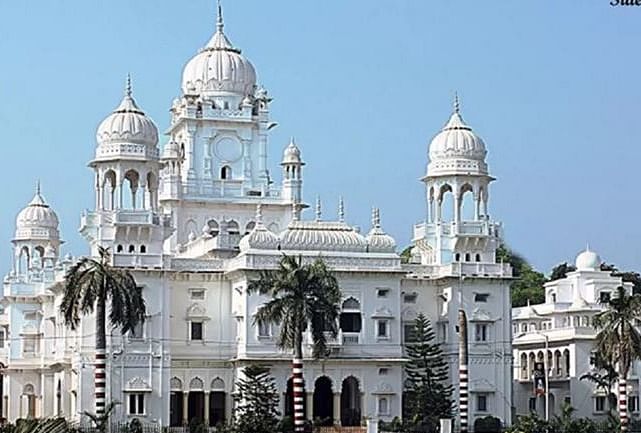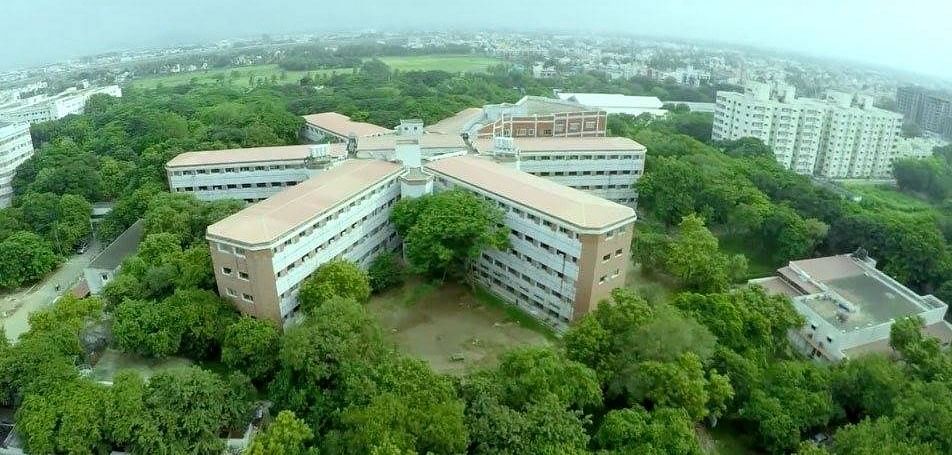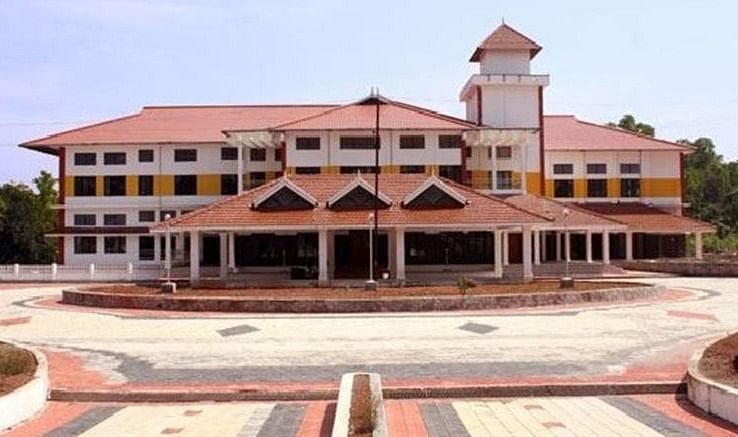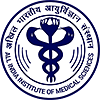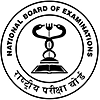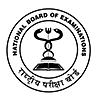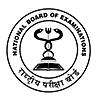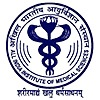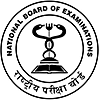MS Orthopaedics

MS Orthopaedics is a three years postgraduate course that deals with Medical Science. Students with a degree in MS Orthopaedics can find employment in many international job sectors. They can fulfil the role of Medical Consultant, Orthopedic Surgeon, Professor, Clinical Associate, and Orthopedic Assistant and many more.
MS Orthopaedics Course Details
| Degree | Masters |
| Full Form | Master of Surgery in Orthopaedics |
| Duration | 3 Years |
| Age | 24-34 |
| Subjects Required | MBBS from an institution or university recognized by Medcial Council of India |
| Minimum Percentage | 50% |
| Average Fees | ₹54K - 18 LPA |
| Similar Options of Study | MS (General Surgery), MS (Ophthalmology), MS (Obstetrics & Gynaecology), MS (Anatomy) etc. |
| Average Salary | INR 15.3 L per annum |
| Employment Roles | Orthopaedic Surgeon, Orthopaedics Professor, Associate Professor - Orthopaedics, Orthopaedics Consultant, Specialist Panel Doctor etc. |
| Top Recruiters | Private and Public Hospitals, Orthopaedic Centres, Orthopaedic Research Centres |
About MS Orthopaedics
According to Wikipedia," Orthopaedic surgery or orthopaedics, is the branch of surgery concerned with conditions involving the musculoskeletal system." The full form of MS Orthopaedics is Master of Surgery in Orthopaedics. The course falls under the umbrella of the Master of Surgery and therefore follows a similar foundation of the study. One of the leading specializations in the MS Orthopaedics Degree is the acute, chronic, traumatic, and overuse injuries and other musculoskeletal system disorders.
Table of Contents
- MS Orthopaedics Eligibility Criteria
- MS Orthopaedics Admission Process
- MS Orthopaedics Entrance Exams
- MS Orthopaedics Colleges
- Why Choose MS Orthopaedics?
- MS Orthopaedics Fees Structure
- MS Orthopaedics Syllabus and Subjects
- Preparation Tips for MS Orthopaedics
- Scope of Higher Education for MS Orthopaedics
- MS Orthopaedics Salary
- MS Orthopaedics Career Options
- Skills to Excel
Eligibility Criteria for MS Orthopaedics
Admission for the MS Orthopaedics course in India begins with checking the course's eligibility criteria, including a minimum aggregate of 45-50% in MBBS in any reputed University or Institution. A passing score is required on the necessary entrance exams. This course is open to all ages. The candidates must have completed their rotating internship during MBBS and carry permanent registration with the Medical Council of India (MCI).
Admission Process for MS Orthopaedics?
The MS Orthopaedics admission process begins with the student passing the eligibility criteria of having a minimum aggregate score of 45% to 50% in MBBS, along with passing marks on entrance exams. Then, aspirants are called to write a written test, participate in group discussions, and have a personal interview after passing these exams. Though the admission process varies from college to college, below mentioned are the steps that one should go through generally to get admission:
How to Apply?
Aspirants must use the online portal/offline network to get the application form first. It has to be filled. Because of covid, online is the only option available right now. Once done, the aspirant has to upload/attach the required documents per the guidelines and the specifications mentioned. Apply for a loan if necessary and pay the fee if selected.
Selection Process
The selection is based on the MS Orthopaedics eligibility criteria of the minimum scores in the listed exams. Once that is done, there might be an entrance test in colleges. After passing those with a decent score, the aspirant is selected. Either with/without the loan, the fee has to be paid depending on the ones quoted by the institution.
Popular Entrance Exams for MS Orthopaedics
Some universities and institutions or even states may conduct their entrance examinations for MS Orthopaedics admissions. The exam includes topics like concepts related to medicine and many more subjects, helping them get an overview of the course. The exams are:
A Quick Glance At the MS Orthopaedics Entrance Exams
The students must qualify for the national or state level MS Orthopaedics entrance exams such as AIIMS PG, PGIMER, NEET PG, JIPMER PG etc. Aspirants can choose B- schools or coaching institutes that prepare students for the entrance exams. The entrance exam gives a glance at the entire course, thus giving an overview of the topic.
- The aspirant needs to learn time management to be able to attempt all the questions.
- Time management and aptitude knowledge are required for the generalized section.
- The exams are held only in English, and thus language proficiency is a must.
- Study the entire syllabus for the entrance exams, covering each topic and studying in detail about them
- Skills to prepare for include concepts related to Medical Science and the previous year's syllabus.
Top 10 MS Orthopaedics Colleges in India
India has a variety of colleges offering a course in MS Orthopaedics. Since it's a form of specialization, it requires a practical and theoretical study which helps them get in-depth knowledge on the course. These are the top 10 colleges in India, according to the updates given in 2021.
|
SI.No. |
Name of the College |
|
1 |
|
|
2 |
|
|
3 |
|
|
4 |
|
|
5 |
|
|
6 |
|
|
7 |
|
|
8 |
|
|
9 |
K.S. Hegde Medical Academy, Mangalore |
|
10 |
Fee Structure for MS Orthopaedics
The course fees may vary based on colleges. A government-based institute charges less than a private institute because of its infrastructure and facilities. The average price of an MS Orthopaedics course in a private institute is about INR 10 - 60 LPA.
|
College Name |
Fees Per Annum |
|
Kasturba Medical College, Manipal |
INR 34 Lakhs |
|
AIIMS, Delhi |
INR 10K |
|
PGIMER, Chandigarh |
INR 3.3K |
|
Christian Medical College TN |
INR 1.77 Lakhs |
|
Maulana Azad Medical College, Mangalore |
INR 15K |
Syllabus and Subjects for MS Orthopaedics
The MS Orthopaedics course is a three-year program consisting of 6 semesters. It covers topics such as learning surgical medical science, including Congenital Disorders, Tumors, Sports Injuries, Infections, treatment of Musculoskeletal Trauma, and much more Degenerative diseases. Depending on the course modules, each college may have its topics and subjects. A few of the subject topics are:
- Infections
- Tumors
- Congenital Anomalies
- Peripheral Nerve Injuries
- Microsurgery
- Non-traumatic Disorders
- The Foot and Ankles
Read More About MS Orthopaedics Syllabus and Subjects
Why Choose MS Orthopaedics?
MS Orthopaedics is a very high demanding course for aspirants trying to work in the medical field. It is a course that provides a wide range of opportunities. This programme emphasizes the importance of research for developing students' understanding and furthering their learning. It even offers a high job scope abroad because of the language proficiency.
What is MS Orthopaedics all About?
MS Orthopaedics or Master of Surgery in Orthopaedics is a three years Post Graduate course. Graduate students with a degree in it from a university that is recognized can pursue this program. This course helps students develop their thinking and management skills for producing original insights into details of the surgery. Considering Orthopaedics is such a broad topic, students have the opportunity to select elective courses and specialize as they wish.
What Does a MS Orthopaedics Graduate Do?
MS Orthopaedics graduates have a variety of job roles and career-related plus points because of the good knowledge with the most needed language. The aspirant chooses either to work with a Healthcare firm or do research and pursue further education. Some of the options are:
Further studies: Graduates of the MS Orthopaedics program have several career options to choose from but even have an opportunity to study further. If they wish to pursue higher education, they can enroll in a program of Masters or any other co-related courses.
Teaching Profession: Graduates can pursue teaching positions in educational and research institutions to share their knowledge and expertise with younger students.
Reasons Why MS Orthopaedics Can Fetch You a Rewarding Career?
MS Orthopaedics is an accredited master's program and provides the aspirants with high career opportunities and other benefits. Infact, since Medical Science is a very important concept, being a master's in it is a plus that one would carry, and any firm would accept a person with the language knowledge. The benefits of the course are:
High Pay: The job offers a good starting salary for freshers and a well of ones for senior or experienced graduates, thus marking it as a good one in the economy.
Exposure: A MS Orthopaedics degree gives good social skills, thus having a good effect as a part of CV and gives a good job scope even abroad, because of the language skills.
Read More About MS Orthopaedics Jobs
Preparation Tips for MS Orthopaedics
MS Orthopaedics entrance exams involve both an aptitude and a knowledge testing type of questions. So being well prepared with it would be of use. Since the exams themselves brief the course, it would be of more use to get into an in-depth study. Below are some preparation tips made by experts for aspirants who want to pursue MS Orthopaedics.
Time Management: The aspirant should be capable of answering all the questions in the specified time. Since it involves sociology, it would be lengthy.
Reading Newspapers: General knowledge and current affairs questions are often asked in entrance exams and sometimes in personal interviews and group discussion rounds.
Skills: Trying to focus more on general Medicine, Aptitude, and the MBBS Syllabus, which are all included in the questions.
Scope For Higher Education
Having an MS Orthopaedics degree opens up a wide range of career options. It is even possible to study further after completing the course. The most commonly followed path in this aspect is the Doctorate degrees, which students can obtain in different specializations involved in the course module. A few of the courses are:
- Diplomat of the National Board of Medical Exam in Orthopedics (DNB)
- Post Graduate Diploma in Orthopedics
- PhD in Orthopedics
Salary of a MS Orthopaedics Graduate
The starting salary of an MS Orthopaedics graduate would be around INR 10 - 30 LPA [Source: PayScale]. As skills and experience increase, so will the salary increment. The salary varies depending on whether it's a private or a public sector and the firm's popularity. Even the job role of the aspirant is a factor that is noted while the salaries are discussed. For instance, an assistant might get paid less than a surgeon at times.
Read More About MS Orthopaedics Salary
Career Options After MS Orthopaedics
After completing a course in MS Orthopaedics, the aspirant can work in public and private sectors depending on the type of work they prefer or their skills. They even have an option of further specialization by doing a postgraduate degree like a doctorate or even a further extension by doing other full-time courses. Some of the best MS Orthopaedics career options in the private sector are:
- Orthopedic Surgeons
- Critical Care
- Medical Consultant
- Clinical Associate
- Orthopedic Professor
- Orthopedic Assistant
Skills That Make You The Best after MS Orthopaedics
The MS Orthopaedics course provides a career boost for people seeking jobs in teaching or social fields. It opens a variety of career opportunities for aspiring welfare/socially active people at various international agencies. Some of the skills required for the MS Orthopaedics graduates are as follows:
- Analyzing and Problem-Solving
- Decision-Making
- Information Skills
- Communication Skills
- Technology Skills
- Practical Skills








